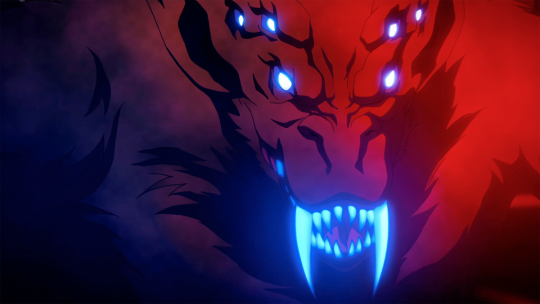Text




I love these people using the orbs to banish Kyogre and Groudon pictures. Go to the bottom of the ocean and think about what you've done. 😡
814 notes
·
View notes
Photo



Tokyo vending machines / What’s your beverage of choice?
7K notes
·
View notes
Text
If you needed motivation today (and for the future, save this clip!), here's Jordan as Ratio saying he's proud of us, his treasured students 🥹
Source:

838 notes
·
View notes
Text
How Cherry views Joe.

4 notes
·
View notes
Text
I made a thing

#matchablossom#sk8#sk8 the infinity#joe#cherry blossom#kaoru sakurayashiki#kojiro nanjo#mlm#gay#other blog
248 notes
·
View notes
Text



The Japanese wolf (Canis lupus hodophilax, known as о̄kami in Japanese ) once roamed the Japanese countryside as one of the archipelago’s few large wild predators, but tragically went extinct in the early 20th century due to introduction of diseases such as rabies and a policy of aggressive hunting during the Meiji period. However, there are those who believe it is still around, in the most remote forested and mountainous areas in the country, and it just so happens that the village of Higashiyoshino, located in Nara Prefecture, fits this description; it was also the location where the last known Japanese wolf was sighted and captured over a century ago. The wolf that lived in Honshu, Shikoku, and Kyushu (distinct from a different species that once lived on the northern island of Hokkaido) was actually quite an unusual animal for its time, perhaps being more closely related to the domesticated dog than any other modern-day wolf species. Although it is now believed extinct, there are apparently DNA links in modern-day Japanese dog species to the Japanese wolf. A monument now stands in the village of Higashiyoshino, where the last known Japanese wolf was captured in the year 1905. Wolves were long held as sacred animals in Japan, and they were even worshiped as mountain deities or “yama no kami” that could protect people’s homes, crops, and by extension, from such things as theft and fires. Wild boar, deer, and even monkeys are all animals known to wreak havoc on cropland, so it makes sense that the wolf as their natural predator would come to be revered as a protector. Skulls of wolves were sometimes even used in exorcism rituals to drive out hostile spirits, such as that of a trickster fox.
Sources: 1, 2, 3.
16 notes
·
View notes
Text




Night creatures of Castlevania
#castlevania#castlevania netflix#castlevania nocturne#blue fangs#flyeyes#abel castlevania#edouard castlevania
1K notes
·
View notes
Text
Let me just remind you guys that...
AI fanfiction is not fanfiction
2K notes
·
View notes
Text

I couldn't stop thinking about this cross-over, so have this.
3K notes
·
View notes







